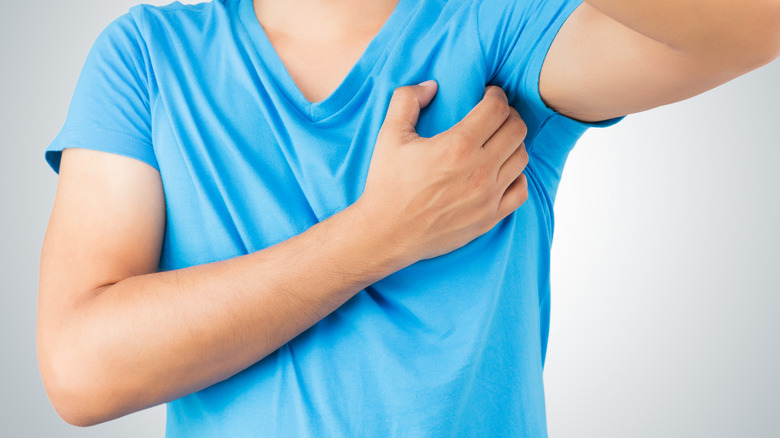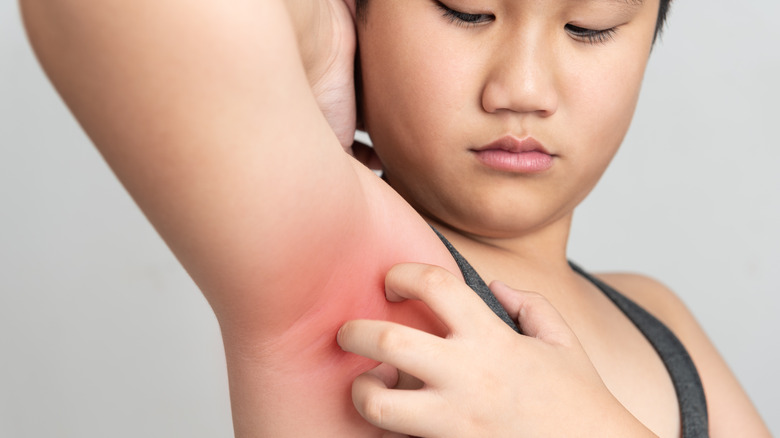The Real Reason Your Armpit Itches
An itchy armpit can be super irritating — especially if you are in public and don't want to sneak your hand into your shirt for some relief. Turns out that body hair, dampness, and warmth make the armpit the perfect breeding ground for itching (via Buoy).
But why does that itching, called pruritus, develop? It can be a reaction to the deodorant or soap you are using, or be an infection caused by yeast or a fungus. Contact dermatitis is a common skin reaction to an allergen or irritant that results in redness, bumps, or scaliness, according to Buoy.
Your itching could also be related to the hair under your arms. Folliculitis — when your hair follicle becomes inflamed due to bacteria — causes red or pus-filled bumps around the follicles, which typically go away on their own. Ingrown hairs, caused when hairs circle back into the skin, leave red or pink bumps (via Men's Health). Experts say this is more of an issue for people with coarse or thick hair.
When itchy armpits can be a sign of infection
There may also be other reasons for an itchy armpit. Eczema is a skin condition that causes rashes or blisters, possibly caused by infection or an allergy (via Healthgrades). You also want to rule out chicken pox, lice, scabies, or pinworm as other possibilities.
If you're in extreme heat or humid weather, an itchy armpit could be sparked by heat rash that goes unnoticed, according to Men's Health. Heat rash happens when perspiration gets trapped under your skin, blocking your sweat ducts and irritating the skin around them.
Unfortunately, the age-old advice not to scratch the itch is actually valid. Itching keeps a rash from healing, and provides an opportunity for infection, according to Healthgrades. You can also treat itchy armpits by trying out new soaps or using over-the-counter antifungal treatments, and avoiding shaving. In more serious cases, prescription medications are available.
Whatever the reason for your itchy armpits, the good news is that typically it is not cause for serious concern. If your condition worsens or you develop a more severe allergic reaction, it is best to seek medical attention.

